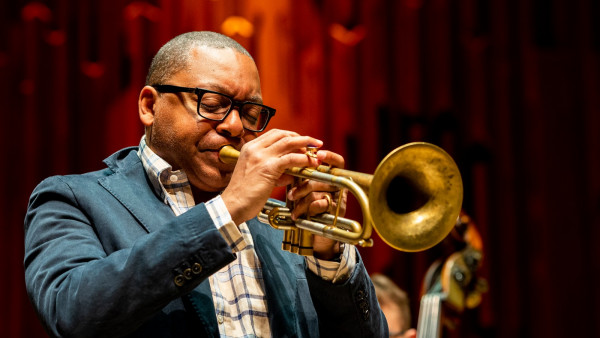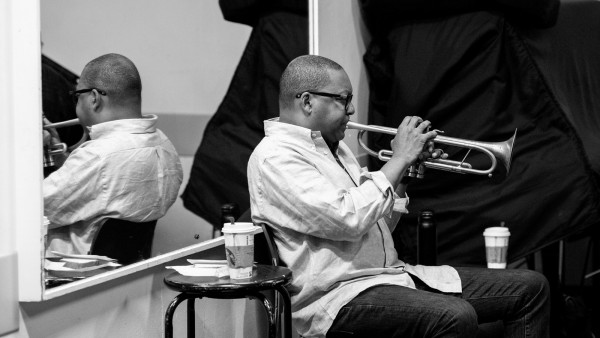Jazz review: Wynton Marsalis Quartet at the Barbican
The overzealous spellchecker on my laptop keeps insisting that Wynton Marsalis’s surname is really “marshmallows”, which is about as inapt a culinary metaphor as you could imagine. Since he comes from New Orleans and loves mixing styles from blues to swing and bebop, “gumbo” comes to mind. Yet there is a self-consciously technocratic flavour to the trumpeter’s playing that conjures up images of a Michelin chef who can make strawberry meringues that taste of squid. It’s incredibly ingenious, but do you want to go back for more?
As a masterclass, this concert was second to none. A plump, cherubic 56, Marsalis still has a touch of the wunderkind about him. There must have been quite a few trumpeters in the audience marvelling at the carefully calibrated dynamics, the purity of his tone and his ability to fire off an intricate phrase at the most frenetic tempo. For those of us who have been following him since he first dazzled audiences in the 1980s, it was a pleasure to hear him revisit the bravura, stop-start theme of Knozz-Moe-King, a tune he originally recorded alongside his saxophone-playing elder brother, Branford.
Yet it was also a reminder that this stripped-down quartet format placed an awfully big burden on Marsalis’s shoulders. Dan Nimmer, the pianist with the Jazz at Lincoln Center Orchestra, is hugely resourceful, but his solos, precise and well groomed, seldom caught fire. And Marsalis’s younger brother, Jason, proved equally fastidious on drums alongside the British double-bass player Mark Lewandowski.
Marsalis himself, once surly and aloof, has turned into an avuncular master of ceremonies. There were anecdotes about the trumpeter Roy Eldridge and other giants of the past, as well as a generous tribute to Clarence Adoo, the disabled trumpeter whose Headspace Quartet provided the support set. On the Gordon Jenkins ballad Goodbye he descended into the stalls to serenade the audience in much the same way the fado queen Mariza often does at this venue. It was an all-too-rare moment of raw emotion.
by Clive Davis
Source: The Times


